
The Continued Scientist Gardener Conversation (Last rebuttal I promise, then we will move onto new topics : )
Hi Mat –
No worries, we are also pretty slow on response time these days. Here a few thoughts / questions based on your responses. After this I PROMISE to move on to a new topic of conversation. Thanks for helping me think through some of these topics and provide some new resources / ideas. I will be sure to share them with the other folks at the Center.
In general I think my primary lens is complex systems and sociology of science, and many of my responses have to do with the POSIWID “The purpose of a system is what it does“
Now on to the rebuttal.

“The reason why my opinion of genetic engineering differs from that of many others is simply that I don’t believe there’s any fundamental, qualitative difference between the collection of techniques that we call “genetic engineering” and those that we call “breeding” (although I did up until halfway through my Ph.D.).*”
Not sure if I would lump mutagenesis and intra/inter-species cross-fertilization. Those seem like pretty significantly different processes in terms of the genotypical change that can take place, no? Wondering if you have any thoughts on Japanese Space Beer or Chinese Space Potatoes? Would like to get some of each and serve them at a Genomic Gastronomy dinner.
“All in all, it’s normal for people to be wary of new technologies. When trains first crossed the British countryside, community groups rose up and accused them of causing all sorts of maladies. More recently we’ve had concerns over organophosphates, high-tension wires, asbestos, nanotechnology, vaccines and cell phones.”
That’s a useful list, but I am wondering what a list of technologies that society has rejected because they proved too risky or harmful would read like. I am certainly glad science/technology critics stood up to the idea and implementation of Eugenics (as an example). (I am not sure if that is a rhetorically cheeky thing to do, but I figured I would give it a try.)
“It’s an important role of government research and regulation to look into the safety of new technologies whenever there’s either evidence or public concern over safety issues – but if hundreds of studies are racked up over many years without any evidence of fundamental dangers (as has occurred with genetic engineering), it’s probably time to start re-evaluating whether our aversion is logical or just emotional. While plenty of new technologies have poisoned people, their effects are usually well beyond obvious long before the 10 year mark.”
Fair enough, but the precautionary principle relating to nuclear power plants is looking a little different in light of Japan’s Tsunami. There have certainly been thoughtful critics of placing a nuclear power plant in Okuma, making arguments grounded in risk scenarios that were statistically improbable but conceptually possible. Obviously, if Nuclear goes off the table as part of the energy mix in many countries now, energy choices will be much more acute because our energy systems are path dependent, and many countries have invested heavily (infrastructure, ideologically, etc.) in Nuclear as part of the mix. At the expense of other paths we could have taken. If arguments against the siting and design of the Fukushima I Nuclear Power Plant been taken seriously, would the entire world be in a very different solution space regarding energy?
Risk assessment is much more difficult when one is dealing with highly non-linear systems like nuclear energy and global agricultural production. These are hugely complex systems, and not surprisingly our tools are primarily focused on human agents, and we have tend to discount Black Swans.
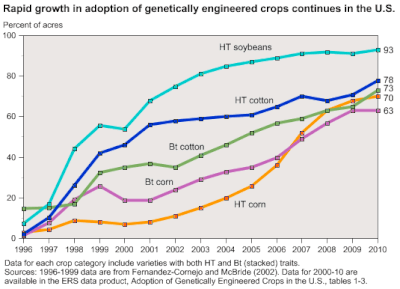 “Concerns over the societal impacts of new technologies is a separate issue from physical safety and we should try not to conflate the two.”
“Concerns over the societal impacts of new technologies is a separate issue from physical safety and we should try not to conflate the two.”
I agree they should not be conflated, but they are also inextricable & intertwined. The fact that the majority of GE crops in the ground in the U.S. are fungible field crops for processing and feeding animals and are created by large multi-national corporations doesn’t help the social perception of the technology.
As a thought experiment – what would have happened if the first GE varietals to gain public consciousness were rare cultivars or wild rices and the technology was framed as a means of saving and preserving diversity in crops and tastes? There might be much less freaking out about physical safety if different crops had been introduced, to say nothing of the shady companies involved and the denial of history by the powerful stakeholders, and a country (the U.S.) with an increasingly low level of scientific understanding (and educational funding cuts all over the place! Good lord. Maybe more people will answer pollsters that they don’t want to eat food with genes in it!)
 “I haven’t paid much attention to these issues (e.g. the whole Bt brinjal story) because I have the impression that technological progress eventually floats all boats (so long as citizens retain enough sense to shatter monopolies and enforce government oversight).”
“I haven’t paid much attention to these issues (e.g. the whole Bt brinjal story) because I have the impression that technological progress eventually floats all boats (so long as citizens retain enough sense to shatter monopolies and enforce government oversight).”
One fairly good article I have seen on the BT Brinjal story is here (.pdf from Economics & Political Weekly: India). Obviously, if we expect citizens and non-experts to have some basic scientific literacy, we as GE domain experts can expect to learn a little about policy / history / cultural preferences. I highly recommend understanding this story because it lays out the diversity of preferences / biases / constraints of the innumerable stakeholders involved in a country of over 1 Billion. Having lived in India on and off for 5 years I can say that citizens have enough sense to “shatter monopolies and enforce government oversight.” It seems to me the fact that Indian citizens collectively reversed the GEACs decision and got a 2-year stay on the introduction of a product that the majority of citizens had legitimate and irrational concerns about seems to indicate a functioning democracy, even if it is at the temporary expense of a foriegn multi-national.
Obviously, one need only look at the U.S. financial sector to know that it is American citizens who may not have the “sense” you speak of. Don’t forget the worst “expert” offenders at the banks were the Quants, often trained as Physicist and in Complex Systems modeling, who relied on hard data to do risk assessment. I wouldn’t blame anyone for NOT having the impression that “technological progress eventually floats” all boats at this moment in history. We’ll see how things shake out. I remain rationally optimistic.
“But I will say that there’s absolutely nothing top-down about the introduction of transgenic crops. Farmers choose who they buy seed from every year and if they don’t like it one year, they wont buy it the next (and the company will stop making it or go out of business).**”
This is a extremely over-simplified narrative about how farming and seed procurement happens, especially in contexts like South Asia. I agree there is nothing top-down about the introduction of any new crop – it is more like an insanely dense network of mediators who are all constrained and have preferences and biases for different, non-rational and co-evolving reasons. I would be happy to track down some ethnographies of Farmers and Seed buying habits if you would be interested in getting at the more nuanced and complex picture on the ground, which is neither top-down nor based ONLY on the preferences of the farmers.
” If you want to make sure farmers have access to elite, non-transgenic seed despite the market, it’s as simple as re-funding public sector breeding operations.***”
Agreed. I would love to support this effort. Is there any particularly good advocacy group in the U.S. or India that you can point me too?
 “Though I have to say, I really hate the idea of telling people they need to give up traditional foods for philosophical reasons – particularly when our lifestyle already violates that philosophy so much more than theirs does.”
“Though I have to say, I really hate the idea of telling people they need to give up traditional foods for philosophical reasons – particularly when our lifestyle already violates that philosophy so much more than theirs does.”
This is a really good point. One of the things we are trying to understand is what varietals of Brinjal (aubergene) were made BT for the Indian / Phillipino market. In India each region has it’s own Brinjal cultivar tied to food traditions such as recipes, stories, etc. I am wondering how Mahyco was planning on marketing their product or suite of products to a food culture that is so diverse.
I also think you make a good point in relation to corn production (GE or not) in the U.S. I don’t usually think of Coca-Cola and Doritos as traditional foods, and yet in a little over 100 years foods like these have replaced the majority of traditional food being served in North America. Obviously, that is a larger issue of food system design, industrial agriculture, American urbanization and then suburbanization, etc. but I don’t want to be naive about the effect of agronomic decisions on gastronomic decisions. Changing foldaways on each end may not be directly causal, but they are certainly correlated. (i.e. More fungible corn grown – more corn syrup / fuel / other processed products created). The purpose of a system is what it does – and what the system of GE crops in the U.S. has done (save Papaya and a few other small time plants) is perpetuate an unhealthy and ecologically unsound food system. I agree that we should “fix” ours first before telling others what to do. Where would you see GE technology best employed to make the American food system more resilient and retain our food traditions?
“Regardless, the underlying truth that well-meaning groups should understand food systems before they try to “fix” them was, I believe, made pretty obvious through the hiccups of the first Green Revolution. I know that applied plant geneticists and breeders are very aware of this now, and I’m sure that organic agronomists and international agricultural development specialists are too.”
I appreciate your optimism, and I look forward to beers at some point to hash out the above point, but with so little history / humanities courses required in engineering and hard science programs (especially in the post-secondary institutions I have visited in India) I am very skeptical of ASSUMING that geneticists and agronomists are aware of the history of the Green Revolution outside of the lens of their discipline.
As you say: “I’m personally not particularly interested in straining over the social implications of every new technology that comes over the horizon – though I think it’s good that there are people (including publicly-funded researchers) who are.”
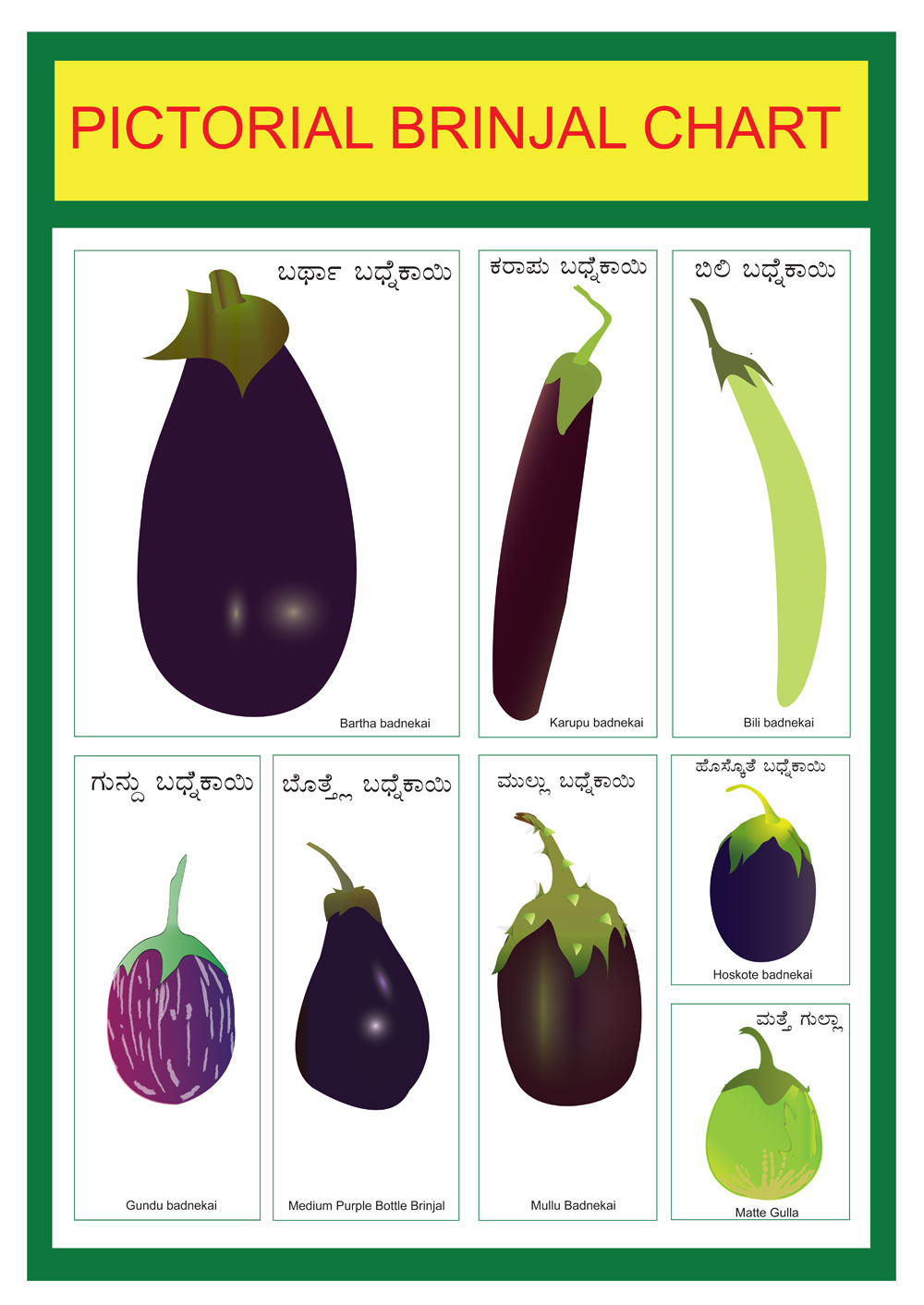 I guess I am one of those people, so it is good we are conversing.
I guess I am one of those people, so it is good we are conversing.
BT Brinjal is particularly interesting as a case because, if approved, it would possibly cause one of the most massive shifts in Agricultural Biodiversity and indigenous foodaways on the planet. These massive shifts have happened before (the Columbian Exchange, etc.) but usually not in the matter of a decade. (Don’t forget, Europeans resisted eating nightshades at first, thinking they were poisonous. They took a while to catch on.)
India is the second biggest Eggplant producer after China and based on Monsanto/Mahyco’s previous market share increase when a product is released, we can guess that that their goal would be to be the dominate supplier of Brinjal seeds on the sub-continent.
But I agree that we have overly romantic notions about farming, whether industrial or subsistence. There is a reason both of us are gardeners and not farmers, but mad respect for the farmers that feed us.
“It is not guaranteed that farmers will reduce pesticide use if the seed is sold nationally without oversight (lack of user-training)” So? Since there’s no serious negative consequence of the Bt transgene, I fail to see a problem – though if your country lacks proper training for the use of pesticides, the possibility of unnecessary sprays should be the LEAST of your concerns – the reusing of pesticide containers for drinking water quickly comes to mind…”
However, one of the major selling point of the BT product line is that has been touted as a way to reduce pesticide use. If that is not an accurate claim the company / state agency / NGO etc. has an opportunity to improve the situation through user training etc. Otherwise, the claim that using a BT varietal reduces pesticide use is empty.
“Anyway, B. thuringiensis can go extinct for all I care if it allows millions of peasants grow good crops without spraying dangerous chemicals around their children. “
This is where social science empiricism has to be taken as serious as natural science empiricism. Are farmers spraying less chemicals around their children? How do we test and verify this hypothesis?
“The introduction of any breakthrough new crop will reduce ag biodiversity, whether it’s transgenic or not. I say, let the farmers grow whatever seed puts the most food in their bellies and lobby governments and non-profits to invest heavily in genebanks. We don’t need to saddle subsistence farmers with the responsibility of conserving biodiversity at their expense.”
Agreed. That is when I laugh when I am told that farming is “natural”. There is nothing natural about bizzaro selectively bred organisms that do humans bidding at the expense of the preference of most other non-humans. However, it is pretty clear that our current economic system hasn’t found a way to monetize externalities, support ecosystem services or build in resilience instead of efficiency. Whether subsistence farmers lead the way, or American farmers do, it is pretty clear that mono-cultural industrial farming that is then highly processed into embodied-energy-intensive packaged food that is shipped around the world is probably not going to be what ANYONE is doing on a planet of 9 Billion people and diminishing energy inputs. I think Cambia and some other more progressive organizations understand the potential of open source genetics: that one could use a variety of techniques and technologies (including GE) to create highly geographic specific cultivars that take into account existing foodaways and nutrient and flavor combinations. Thus far, we have not seen industry lead the way in that kind of Genetic Engineering. They have primarily opted for fungiblity and efficiency.
“I agree this sounds scary, but it’s the natural order that most plants are resistant to most pests and pathogens (Likewise, think about how many pathogenic and parasitic microbes, animals, fungi and plants are unable to feed on you!). Besides, it only affects individuals that eat the transgenic crop – it’s not like it permeates the whole environment and poisons all butterflies that get too close (like conventional synthetic and organic pesticides do). Ironically, I think it’s pretty safe to say that transgenic insect + pathogen resistance traits produce the FEWEST non-target effects, while organic sprays (e.g. general biocides like copper) produce the MOST. Some synthetic pesticides hurt lots of things besides the target pest, while others are incredibly specific.”
Good point. I am glad you have thought about it that way. Going forward, it will be important to have a better schema and methodology for measuring and talking about the way different agricultural technologies effect a range of actors in the agricultural ecosystem.
“I’m not sure I agree that potentially hurting a small community is much different than hurting a large community. Though either way, that ship has sailed: Me and about 300 million of my countrymen have been eating GM food on probably a daily basis for the better part of a decade. If it’s safe for me, I’m happy to let Indians decide that it’s safe for them too.”
 Again agreed, but in a slightly different way. I have eaten GE food for probably two decades as an American, and it has come primarily in the form of soda, processed snack food, and fast food. Is it surprising to you that the first Taco Bell opened in India last year and PIZZA HUTS are popping up like mushrooms? I assume that these are the outputs for BT corn NOT feeding subsistence farmers. So while I agree we can not make choices for other people, we shouldn’t be naive about the complexity and the output of the American food system.
Again agreed, but in a slightly different way. I have eaten GE food for probably two decades as an American, and it has come primarily in the form of soda, processed snack food, and fast food. Is it surprising to you that the first Taco Bell opened in India last year and PIZZA HUTS are popping up like mushrooms? I assume that these are the outputs for BT corn NOT feeding subsistence farmers. So while I agree we can not make choices for other people, we shouldn’t be naive about the complexity and the output of the American food system.
The purpose of a system is what it does.

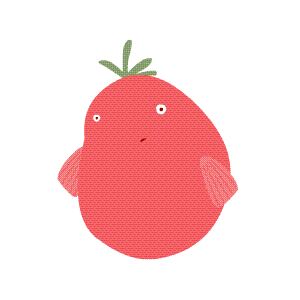


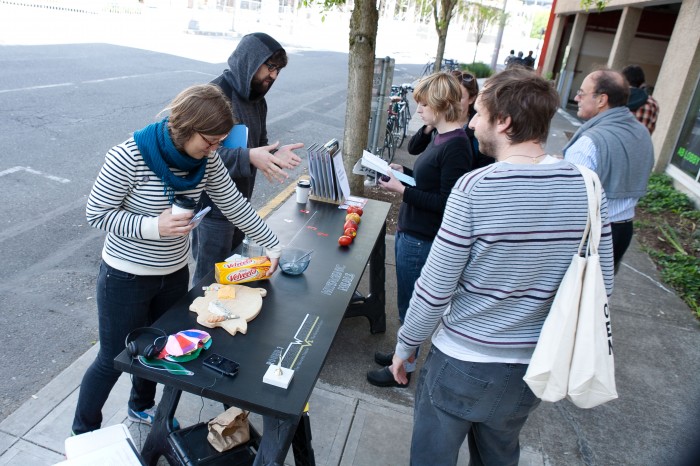

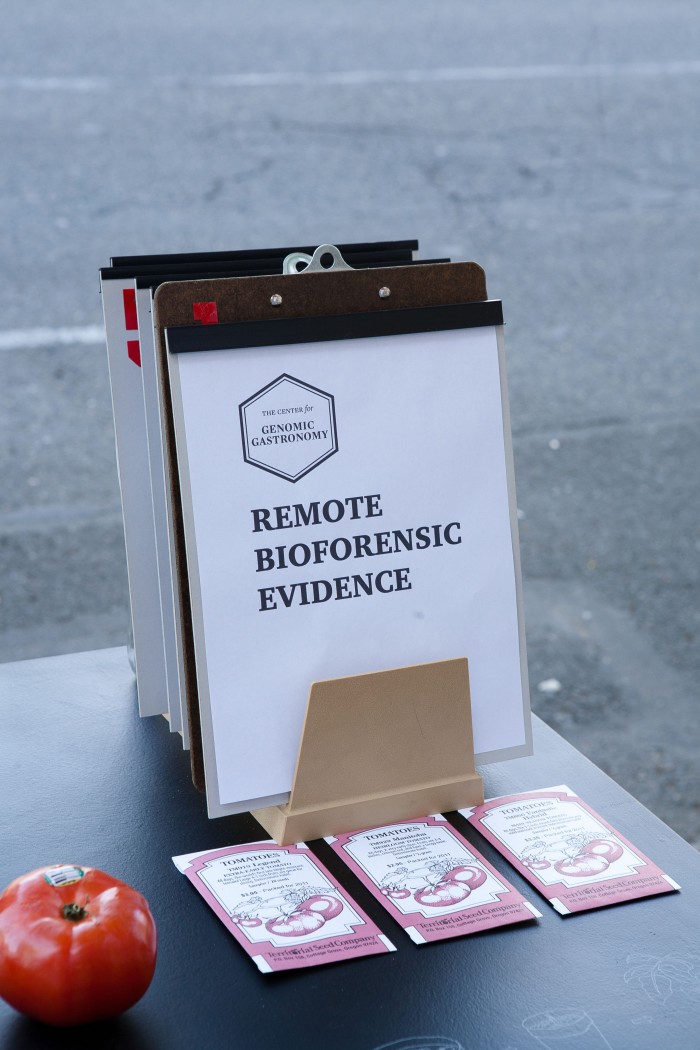


 “Concerns over the societal impacts of new technologies is a separate issue from physical safety and we should try not to conflate the two.”
“Concerns over the societal impacts of new technologies is a separate issue from physical safety and we should try not to conflate the two.” “I haven’t paid much attention to these issues (e.g. the whole Bt brinjal story) because I have the impression that technological progress eventually floats all boats (so long as citizens retain enough sense to shatter monopolies and enforce government oversight).”
“I haven’t paid much attention to these issues (e.g. the whole Bt brinjal story) because I have the impression that technological progress eventually floats all boats (so long as citizens retain enough sense to shatter monopolies and enforce government oversight).” “Though I have to say, I really hate the idea of telling people they need to give up traditional foods for philosophical reasons – particularly when our lifestyle already violates that philosophy so much more than theirs does.”
“Though I have to say, I really hate the idea of telling people they need to give up traditional foods for philosophical reasons – particularly when our lifestyle already violates that philosophy so much more than theirs does.” I guess I am one of those people, so it is good we are conversing.
I guess I am one of those people, so it is good we are conversing. Again agreed, but in a slightly different way. I have eaten GE food for probably two decades as an American, and it has come primarily in the form of soda, processed snack food, and fast food. Is it surprising to you that
Again agreed, but in a slightly different way. I have eaten GE food for probably two decades as an American, and it has come primarily in the form of soda, processed snack food, and fast food. Is it surprising to you that 
